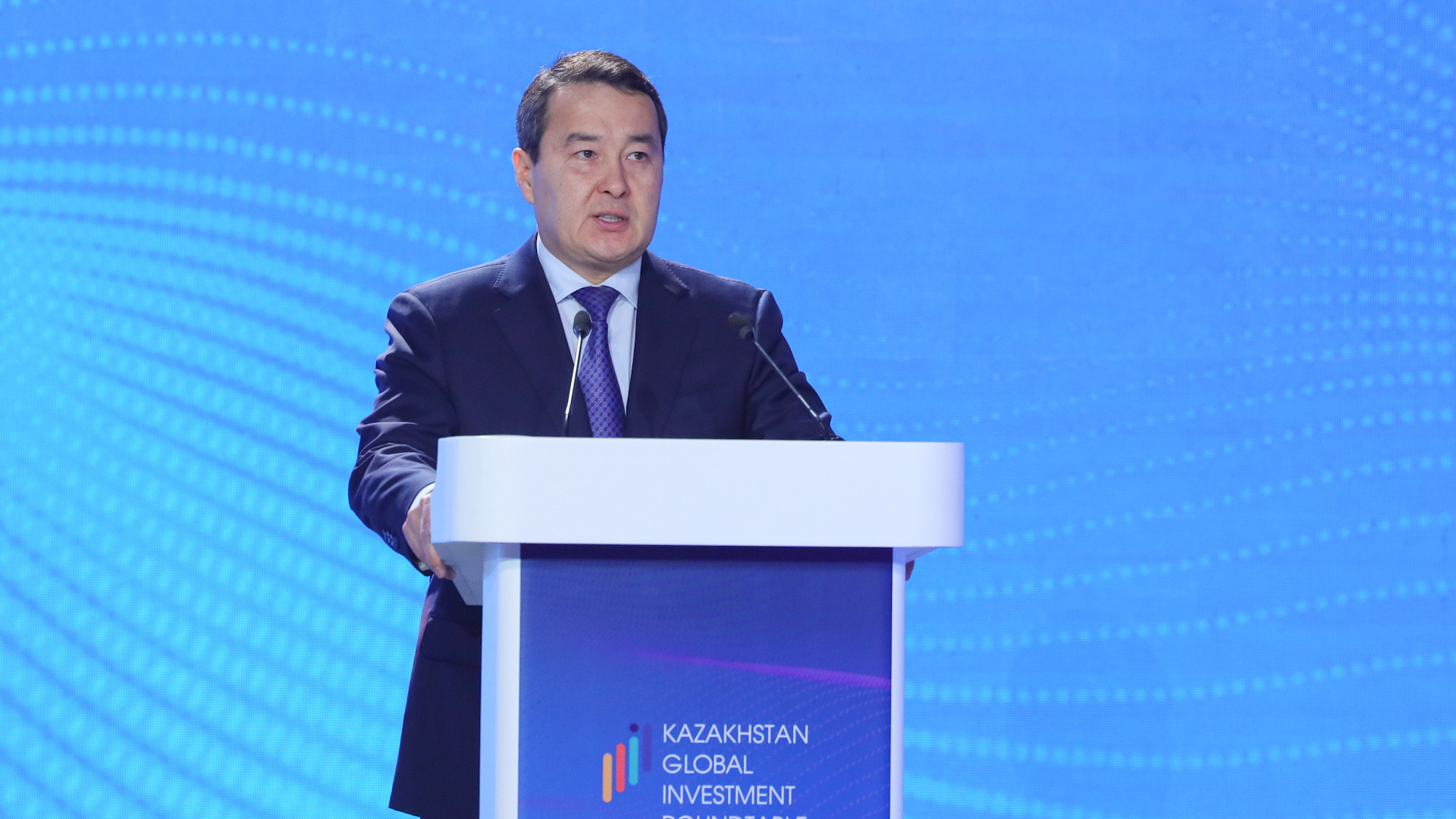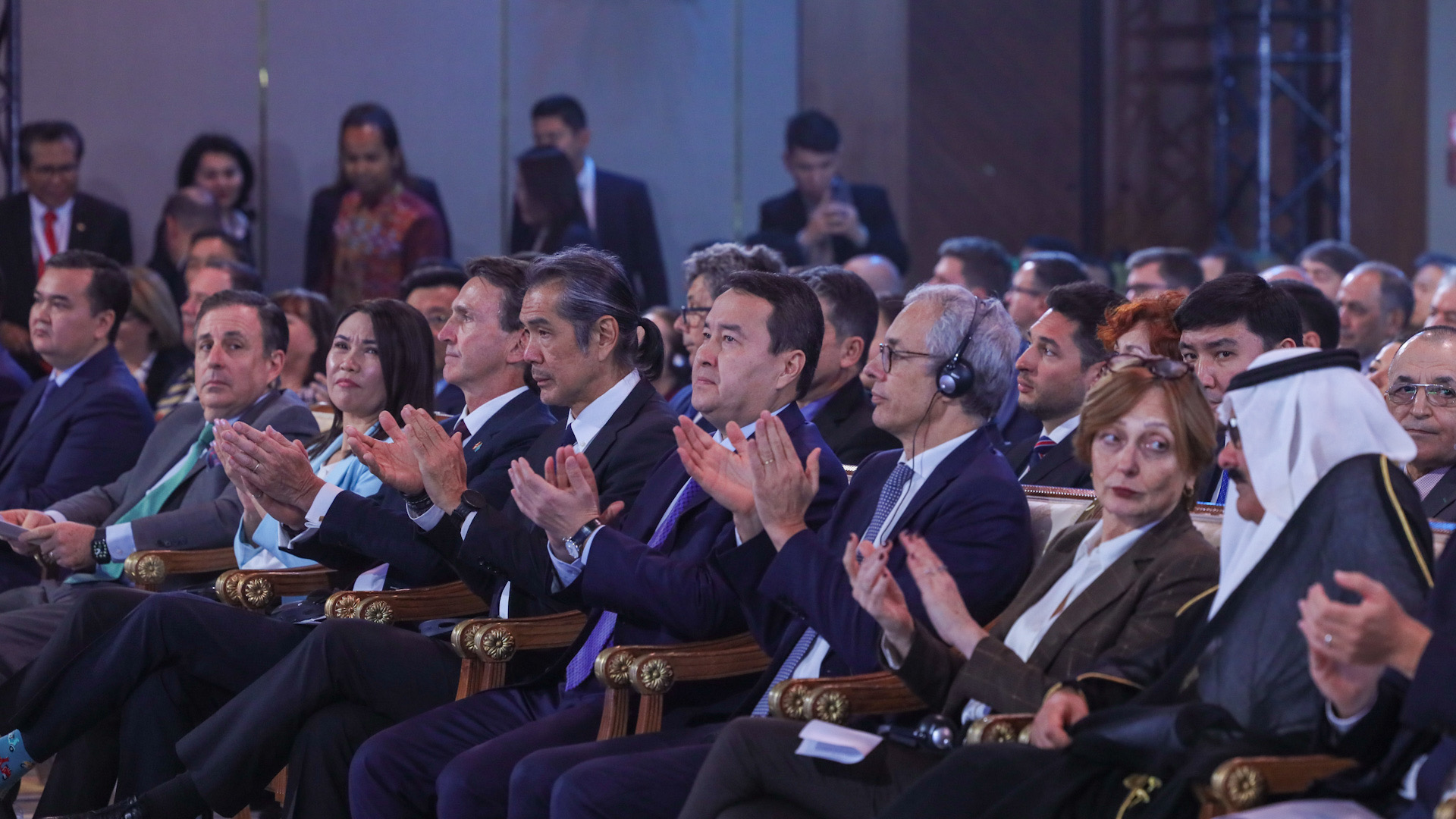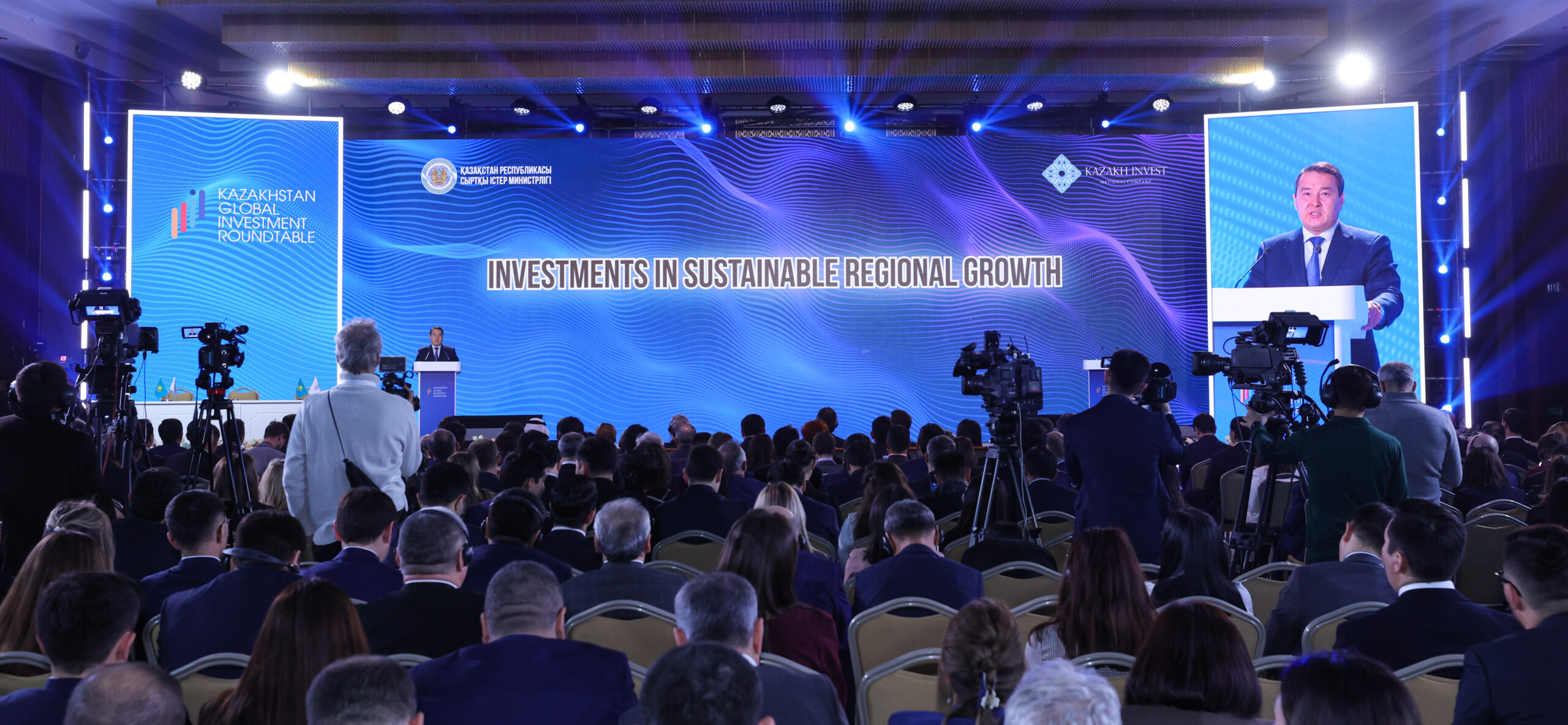ASTANA – Prime Minister of Kazakhstan Alikhan Smailov, leaders of top international companies, and experts reviewed Kazakhstan’s emerging opportunities and challenges in building investment infrastructure for long-term sustainable growth as part of the Kazakhstan Global Investment Roundtable (KGIR) on Nov. 17 in Astana.

Alikhan Smailov. Photo credit: Primeminister.kz.
In his welcoming speech, Smailov said that “despite the current global challenges, Kazakhstan’s economy is showing steady growth.”
“Last year, the total volume of foreign direct investment (FDI) increased by 18% and reached $28 billion. In the past six months of this year, approximately $14 billion more have been attracted to the national economy,” he said.
Smailov added that the stability of the country’s sovereign credit rating is regularly confirmed by international rating agencies, such as Fitch, S&P Global, and Moody’s.

Photo credit: Primeminister.kz.
Investments, he emphasized, are “the main factor of Kazakhstan’s economic growth.” The country continues to create favorable conditions for investors, particularly by improving investment support tools.
“Kazakhstan is interested in attracting at least $150 billion of foreign investment by 2029,” said Smailov.
Smailov paid attention to the importance of an effective regulatory environment for entrepreneurship.
This year, according to him, more than 9,000 business requirements have been excluded from Kazakhstan’s legislation. It is planned to exclude another 1,000 by the end of 2023.
Kazakhstan is developing a national plan to provide projects with high-quality infrastructure by 2029 and is introducing new financial incentive mechanisms to facilitate investment flows into complex oil and gas projects.

Photo credit: Primeminister.kz.
“For investment projects in priority sectors worth over $50 million, there is a possibility of concluding an investment agreement that guarantees the stability of Kazakhstan’s legislation for 25 years. To date, we signed six agreements of this type totaling $1.5 billion,” he said.
More than 20 major projects aimed at replacing exports and imports are now in the process of implementation.
“Kazakhstan has also formed a nationwide pool to monitor and control the implementation of investment projects. It encompasses nearly 1,000 projects worth more than $69 billion,” said Smailov.
Kazakhstan’s commitment to economic modernization, digital transformation, and sustainable development aligns with investment priorities of top international companies.
Ahmed Bin Ali Al Dakheel, CEO of the Al Rajhi International for Investment company, said that Kazakhstan with its vast resources, strategic location, and ambitious development plans, “holds massive potential for investors.”
“I am particularly impressed by Kazakhstan’s focus on strategic development of its economy,” he added.
The establishment of the Astana International Financial Centre (AIFC), in his opinion, is also a proof of the country’s potential to become a regional hub for financial services and global investment.
When it comes to renewable energy, a growing number of major international players are coming to pursue sizable wind, solar and hydro projects. French Total Energies’ $1.3 billion investment for the development of a one-gigawatt wind farm is one of them.
“As mentioned by Kazakhstan’s President Tokayev and France’s President Macron on Nov. 1, this project will be a flagship in Central Asia. Such solutions can only be developed based on a trustful and constructive dialogue,” said its CEO Thomas Maurisse.
Zsuzsanna Hargitai, the managing director of the European Bank for Reconstruction and Development (EBRD) shared thoughts on improving sustainable infrastructure development in Kazakhstan.
She suggested the creation of additional jobs, the localization of production of key equipment, and an idea to “turn Kazakh cities into green cities applying digital city management for urban planning.”
Hargitai also added that Kazakhstan remains a key strategic partner for the European Union (EU) and has great potential to develop cooperation in critical mineral development.
“Kazakhstan has not only been blessed with natural resources, but with a geographical position, right at the center of the three most important economic blocks of the next decades,” said CEO of ACWA Power Marco Arcelli.
Speaking about their companies’ investment activities with Kazakh partners, CEO of Global DTC Yeong Wee Tan and CEO of Condor Energies Don Streu highlighted a raft of emerging opportunities in Kazakhstan and noted the relevance of the country’s progress in digitalization and strategic partnership with businesses based on friendship and trust.

